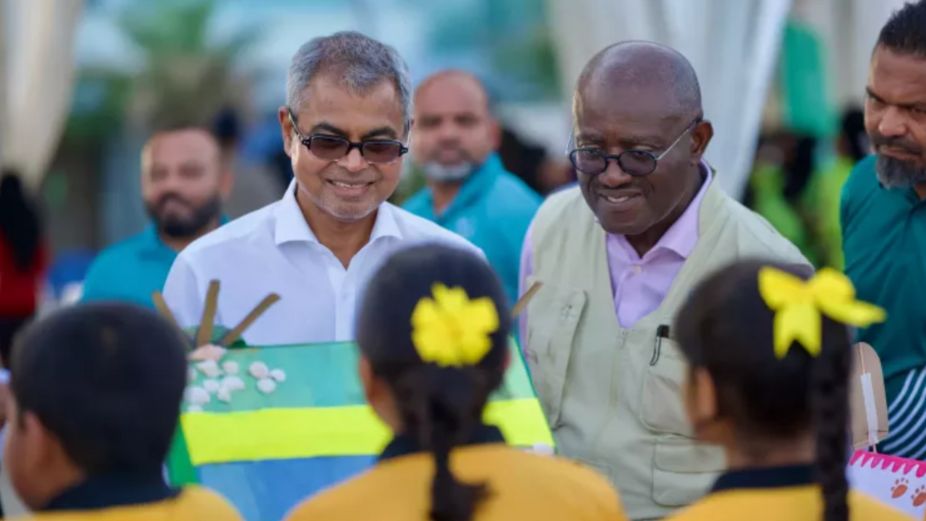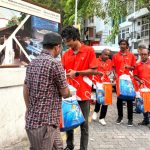
Marking World Environment Day 2025, Minister of Tourism and Environment Thoriq Ibrahim and UNICEF Representative to the Maldives, Dr Edward Addai, issued a powerful joint statement warning that the climate crisis is no longer a distant threat — it is an immediate and lived reality for children in the Maldives.
“It affects every aspect of their lives, from health and nutrition to education and safety,” they stated, drawing attention to the multifaceted and urgent impact of climate change on the nation’s youngest and most vulnerable.
They also spotlighted plastic pollution as a critical issue that endangers not only the environment but also the health and futures of children across the islands.
Plastic Pollution: A National and Generational Crisis
This year’s World Environment Day theme, “Ending Plastic Pollution,” resonates deeply with Small Island Developing States like the Maldives, where the ocean defines both geography and economic lifelines.
In their statement, the Minister and UNICEF Representative stressed how plastic pollution has become entrenched in daily life. It has moved far beyond being a mere environmental concern to posing an escalating and direct threat to public health — particularly that of children.
Microplastics have now been detected in breast milk and placental tissue, indicating that exposure begins even before birth. The risks are serious and wide-ranging:
- Health: Toxins from plastics can impair brain development, disrupt hormonal systems, and weaken immunity.
- Safety: Poor waste management can spark disease outbreaks, contaminate water supplies, and render school environments unsafe.
- Environment: With rising sea levels and intensifying climate impacts, plastic pollution further destabilises the fragile ecosystems that island communities depend on.
Their message is unequivocal: these are not future threats — they are present and pressing realities for Maldivian children.
Young People: From Victims to Leaders of Change
A central theme of the joint statement is empowerment. While young people are among the most affected by the climate crisis, they are also emerging as its most effective leaders.
Through the UNICEF Climate Guardians initiative, Maldivian youth have received training in climate advocacy, negotiation, and leadership. Their contributions have already influenced national policies, including the Maldives’ Nationally Determined Contributions (NDCs) under the Paris Agreement, ensuring that climate commitments reflect the perspectives and needs of children and young people.
Young Maldivians are not only making their voices heard on the global stage — they are leading locally. From organising beach clean-ups to modelling low-waste lifestyles, they are proving that they are not merely inheriting this crisis — they are determined to solve it.
A National Call to Collective Action
The statement also serves as a national call to action, urging every segment of society to play its part:
- Communities must adopt sustainable lifestyles and actively participate in clean-up efforts.
- Businesses should embrace innovation, reduce plastic use, and transition to eco-friendly models.
- Young People must continue to lead with energy, commitment, and vision.
- Policymakers are called upon to place children at the heart of climate and development strategies, ensuring policies are child-centred and future-focused.
Action Today for a Healthier Tomorrow
World Environment Day 2025 is more than a symbolic event — it is a rallying cry for urgent, coordinated, and inclusive action. In a nation where the ocean is both a provider and a point of vulnerability, protecting the environment means protecting every Maldivian child.
Minister Thoriq Ibrahim and Dr Edward Addai’s closing words encapsulate the urgency and hope behind the message: “Let us act now. For every child. For every island. For our shared future.”












